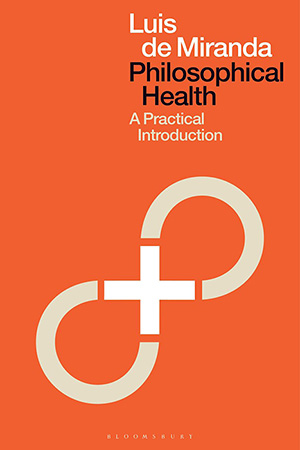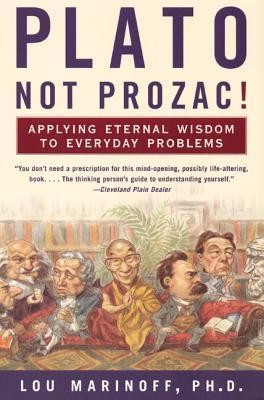The other day, while walking along the Isle of Man’s rugged coastline, a friend asked me what philosophical coaching actually means. It’s a question I’ve heard many times over the past few months, and like most important questions, its answer runs deeper than it first appears.
‘Is it like regular life coaching?’ she asked. ‘Or more like therapy?’ The question lingered in the sea air as we watched waves crash against ancient rocks below. At that moment, I was reminded why this conversation is more relevant now than ever.
In an age obsessed with productivity hacks and quick-fix solutions, something essential has been overlooked. In much of the modern world, we have unprecedented comfort and convenience, yet many of us feel lost. The evidence is everywhere: rising rates of anxiety and depression, a pervasive sense of meaninglessness, and what some thinkers call the ‘meaning crisis’—a term popularised by cognitive scientist John Vervaeke to describe the growing existential disorientation in contemporary society.
The self-help industry responds with an endless stream of books, apps, and programs promising transformation. Yet despite this flood of advice, many of us still feel stuck—not because we lack information, but because we may be asking the wrong questions.
Why Philosophy Now?
Traditional life coaching often focuses on setting goals and creating action plans. Therapy, while essential for healing past wounds, primarily addresses emotional and psychological well-being. Both serve essential functions, and as a coach, I apply the former to my sessions when needed. But there is another dimension to human experience that often goes unaddressed: the fundamental questions of meaning, purpose, and how to live well—questions that have challenged humanity for millennia.
In that sense, we could say the ‘meaning crisis’ is not new. It has always been with us. What has changed is that many of the frameworks that once provided people with meaning—religion, tradition, and community—have significantly eroded. We are told we can be anything, do anything, become anything. Yet paradoxically, this boundless possibility often leads to paralysis rather than freedom.
Philosophical coaching does not offer another productivity tool or self-improvement plan. Instead, it provides a structured way to engage with life's deeper questions. This is, in fact, philosophy’s original function. The great thinkers of history—Socrates, Confucius, the Stoics, existentialists like Sartre and Kierkegaard—were not simply theorists. They were engaged in practical philosophy, using dialogue and reflection to navigate uncertainty and seek wisdom.
“Philosophy was originally a way of life, not an academic discipline—a subject to be not only studied but applied” Lou Marinoff PhD, Plato, Not Prozac!
What Does Philosophical Coaching Offer?
I see this daily in my practice: intelligent, capable individuals who have achieved everything society told them would bring fulfilment, yet they still feel an unshakable emptiness. Philosophical coaching helps navigate this complexity by cultivating clarity of thought. It is about learning to ask better questions, think more deeply, and find meaning within your own unique circumstances.
At its core, philosophical coaching reconnects us with what I call ‘natural wisdom’—an innate human capacity for understanding and flourishing. This wisdom existed long before self-help books or productivity apps; it is philosophy in action.
Living on the Isle of Man, surrounded by nature’s rhythms, I am constantly reminded that our ancestors did not need complicated systems to understand when to rest, how to make decisions, or what gave their lives meaning. They possessed a deep connection to themselves, their communities, and the natural world.
This wisdom has not disappeared. It has simply been buried under layers of modern distractions and often arbitrary markers of success. Philosophical coaching helps unearth it—not by imposing external solutions, but by helping you develop your own capacity for wisdom and discernment.
Unlike approaches to life coaching that focus primarily on achievement, philosophical coaching is about understanding why certain goals matter to you in the first place. It shifts the focus from external measures of success to internal clarity and authenticity.
How It Works
In my experience, the most profound insights often emerge not from receiving advice but from structured dialogue that helps you:
- Examine your assumptions and beliefs
- Clarify your values and priorities
- Develop better ways of thinking about challenges
- Find authentic meaning in your life
- Access your natural wisdom and intuition
Through this process, you do not just gain answers to current questions—you develop the tools to navigate future challenges with greater resilience and insight.
The Path Forward
The challenges of modern life will not be solved by another productivity app or self-help trend. What we need are better ways of thinking about our difficulties, clearer frameworks for decision-making, and a deeper connection to wisdom—both personal and collective. This has been the work of practical philosophers for centuries.
As I walked with my friend that day, watching the endless dance of sea and shore, I was reminded that wisdom, like the tides, follows natural rhythms. Philosophical coaching offers a way to reconnect with these rhythms—not through prescribed solutions, but through guided exploration of life’s fundamental questions.
In an age of increasing ambiguity, this kind of deep thinking is not a luxury—it is a necessity. We spend too much time pathologizing ordinary human struggles. Not every difficulty is a disorder to be treated; sometimes, uncertainty and questioning are not signs of illness but invitations to deeper understanding. The very confusion and restlessness that bring people to philosophical coaching are not symptoms of dysfunction but signals that the mind is wrestling with life’s most important questions.
As Socrates famously said, the unexamined life is not worth living. In a world saturated with distraction and superficial solutions, perhaps it is time to examine yours more deeply.
Recommendations
If this approach to navigating life's complexities resonates with you, I invite you to explore philosophical coaching through a personal consultation. Together, we can discover how philosophical wisdom might illuminate your specific path forward. [find out more here]
For those interested in deepening their understanding of philosophical approaches to modern living, I recommend the following two accessible books:

‘Philosophical Health: A Practical Introduction’ by Luis de Miranda explores what it means to cultivate a sound mind in harmony with body and environment. De Miranda introduces philosophical health as the art of balancing six 'existential senses': body, self, belonging, possibility, purpose, and the philosophical sense. Drawing from diverse wisdom traditions and real-life experiences, he provides a practical framework for navigating our complex modern world.

‘Plato, Not Prozac!’ by Lou Marinoff presents a compelling case for applying philosophical wisdom to everyday challenges. Moving beyond conventional approaches, Marinoff shows how timeless philosophical insights can help us address everything from relationship issues to career decisions, demonstrating that ancient wisdom remains remarkably relevant to our modern struggles.










Member discussion